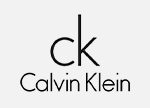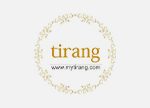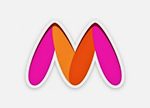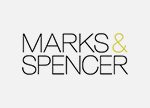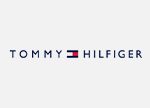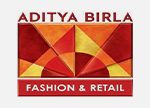The Course
Diploma in Fashion Design
Transform your Passion into Fashion Mastery
These Diploma programmes are designed for participants looking to enter the design world, and provide a complete education allowing participants to acquire the necessary knowledge and skills to pursue a career in the chosen field.
BENGALURU
Duration
3 years (full-time)
Eligibility
10th/SSLC/SSC from the recognised boards
Certificate Type
Diploma
Diploma Issuing Authority
Sunrise University
Programme Overview
This comprehensive 3-year programme lays the foundation for a successful career in fashion design. Develop strong technical skills in sketching, patternmaking, draping, garment construction, and textile knowledge. Learn about the fashion industry, design process, and professional practices to prepare for a range of design roles
Diploma in Fashion Design enhances and refines the creative language of students and enables them to identify and develop their skills. Following a rigorous curriculum covering the fundamental methodologies that inform the practice of fashion design, the students are also exposed to various growing digital and technical tools. Students develop an advanced understanding and application of fabrics, pattern cutting, garment construction and draping, along with a research-driven design process. The learning is further augmented by various workshops that introduce them to the evolving, versatile and interdisciplinary nature of fashion design along with the development of various skills. Students are exposed to trends and are equipped with the skill to interpret and analyse forecasts. The diploma program also trains and develops marketing and entrepreneurial skills in the students in order to enable them to efficiently sustain themselves.
- PROGRAMME OBJECTIVE
- LEARNING OUTCOMES
- CURRICULUM
- EVALUATIONS
- ASSESSMENTS METHOD
- CAREER OPPORTUNITIES
- PLACEMENTS
- The three-year Diploma in Fashion Design offered by JD Institute of Fashion Technology:
- Inculcates a term-based learning with the European Credit Transfer System (ECTS).
- Consists of an accredited syllabus which is at par with the leading fashion schools of the world.
- Concentrates on progressive teaching modules to attain Industry-oriented outcomes.
- Follows an integrated approach to theory and practice; the curriculum supports a 3-month industry internship.
- Focuses on a comprehensive CAD training structure to equip students with an in-depth understanding of creative realisation and development.
- Develops the entrepreneurial skills of the student.
Completing Diploma in Fashion Design will enable students to:
Develop a holistic approach towards fashion design through the integration of theory and history; the ability to challenge its scope and potential.
Develop a personal creative identity; realise areas of specialisation.
Develop expertise to develop their own fashion collectionsability to interpret and formulate forecasts using WGSN (Worth Global Style Network).
Attain an in-depth knowledge about the application of fashion design, its practice and methodologies.
Acquire hands-on experience in textile, and garment construction exploration.
- Achieve advanced technical ability and fluency through intensive training in draping and pattern drafting as well as expertise in digital tools. Apply Online
Semester 1
- Fundamentals of Art
- Art Appreciation
- Elements of Textile – I
- Fashion Theory
- Foundation Art Studies
- Draping – I
- Fashion Illustration
- Surface Design Techniques – I
Semester 2
- Pattern Drafting – I
- Design Process
- Elements of Textile – II
- Surface Design Technique – II
- Construction Technique – I
- Fashion Illustration – II
- Textile Workshop
Semester 3
- Pattern Drafting – II
- Graphic Design – I Adobe Photoshop
- E-Commerce
- Fashion Sourcing
- Construction Technique – II
- Draping – II
Semester 4
- Graphic Design – II
- History of Costume
- Fashion Marketing
- Fashion Merchandising
- Craft Study
- Graphic Design – II Adobe Illustrator
Semester 5
- Fashion Entrepreneurship
- Fashion Visual Merchandising
- Fashion Styling
- Fashion Forecasting
- Portfolio
- Fashion Illustration – III
Semester 6
- Business Communication & Professional Practices
- Retail Management
- Brand Management
- Fashion Law
- JD Design Awards
- Internship
- Case Studies:Real-world industry scenarios are explored to assess students’ ability to apply theoretical knowledge to practical situations.
- Industrial Visits:Mandatory visits are organized to teach students about current industry trends and requirements.
- Self-Study:Students independently explore and analyze subjects to support the principles taught in the course.
- Classroom Lectures:Vital information is imparted to the entire cohort through structured lectures.
- Seminars:Students engage in debates and arguments to encourage critical thinking and expression of ideas.
- Studio /Workshop / Laboratory / Practical Sessions:Simulated industry environments help students develop creative and practical skills.
- Demonstrative Assessments::Used for evaluating students’ proficiency in technical subjects.
- Group Work:Encourages teamwork and assigns roles to students for collaborative learning.
- Internal Assessments–Provide an evaluation of students’ learning progression throughout the course.
- Projects–In-class and independent research projects are undertaken to demonstrate students’ depth of understanding.
- Semester Examinations– based assessments designed to test students’ comprehension of subjects.
- Presentations-Used to assess subject understanding, communication skills, professionalism, critical thinking, and the ability to argue interpretations and findings.
- Portfolio Assessment:-Used in certain subjects to showcase learning from concept to execution.
- Self and Peer Assessment – Empowers students to become autonomous learners and integrates assessments into the learning process.
- Thesis Assessment– Involves independent research to test and prove the viability of an idea.
- Fashion Designer
- Fashion Designer
- Costume Designer
- Illustrator
- Fashion Buyer
- Stylist
- Trend Analyst
- Fashion Product Manager
- Sewing Technician
- Educator
- Blogger
- Clothing/Textile Technologist
- Merchandise Planner/Allocator
- Fabric Researcher
- Print Designer
- Pattern Designer
FAQ
Q. What is taught in the three-year Diploma in Fashion Design course?
A. The course covers a comprehensive curriculum including design fundamentals, sketching, draping, pattern making, garment construction, textile science, fashion history, trend analysis, computer-aided design (CAD), marketing, and entrepreneurship. You will also gain invaluable practical experience through workshops, industry visits, and a final project.
Q. What is the eligibility to register for the Diploma in Fashion Design?
A. You need to successfully complete 10th/SSLC/SSC from the recognised boards inorder to be eligible for the Diploma in Fashion Design course.
Q. What are the career opportunities after the course?
A. Post the completion of the course students can pursue careers as fashion designers, garment technologists, fashion stylists, costume designers, textile designers, fashion business owners, and more.
Q. Is career placement assistance offered by the JD School of Design?
A. Yes, we provide 100% placement assistance. However, to be eligible for it you will have to complete all the requirements of the course.
Q. What are JD Design Awards?
A. JD Design Awards is an annual design showcase that recognizes students excellence and presents their work in front of the media and industry experts.
Q: What is the infrastructure like?
A: The course offers state-of-the-art facilities and resources to enrich your learning experience.
Q: Does JD School of Design offer scholarships and fee concessions?
A: Yes, JD School of Design offers a variety of scholarships and fee concessions to help students access education. For more information click here.
Q: Does JD School of Design offer scholarships and fee concessions?
A: Yes, JD School of Design offers a variety of scholarships and fee concessions to help students access education. For more information click here .

